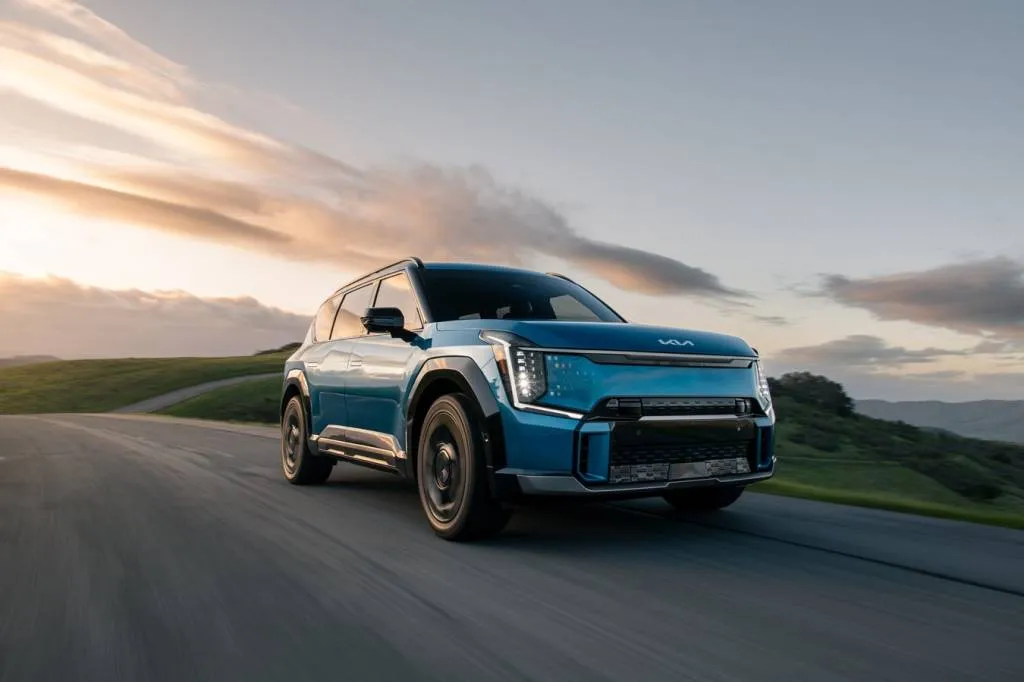Connecticut and Maine have delayed adoption of California’s EV sales mandate, leaving EV advocates to retrench, reports Energy DriftBreath Network.
On March 20, Maine’s Board of Environmental Protection voted 4-2 against adopting California’s Advanced Clean Cars II rules, which accompany the state’s planned ban on sales of new gasoline cars in 2035 and require more plug-in hybrids with higher electric range.
Volkswagen ID.7
Last November, Connecticut Governor Ned Lamont pulled a bill proposing adoption of the Advanced Clean Cars II rules from legislative consideration because it was not expected to have the votes to pass. And neither state has considered California’s Advanced Clean Trucks rules for commercial vehicles.
The two New England states haven’t exactly been hostile to EVs. Connecticut has been very proactive in its EV policy, in fact, and was one of the first states to revamp its EV policy around low-income households.

2024 Kia EV9
EV advocates believe the debate over adoption of the California standards in both states was “clouded by false and misleading claims, often pushed by fossil fuel industry groups,” according to the report. Advocacy groups are now concerned that the delay will push out adoption of the rules to the 2029 model year at the earliest, but are reportedly refocusing on efforts to build out charging infrastructure in the meantime.
California’s Clean Air Act waiver allows it to set its own, stricter emissions rules, which other states can follow in lieu of the federal rules. The West Coast states were quick to align behind California in this latest round of emissions standards, but it’s taken others much longer. However, mandates may not be the most effective factor in increasing EV sales. A 2021 Energy Department survey found that three of the five states with the most EVs did not have mandates for them.


